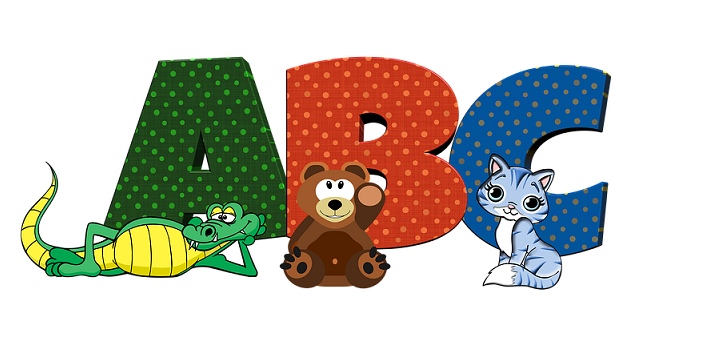 Finding ways to engage your child in learning the alphabet can be challenging at times. Their attention can easily turn to something more fun and interesting, especially if they are finding the task a little bit too much like hard work. If your child is feeling bored, the chances are you will be too. Studies have proved time and time again that a human’s ability to learn something is greatly improved if they are having fun. So we have put together five ways for you and your child to have fun while they learn the alphabet.
Finding ways to engage your child in learning the alphabet can be challenging at times. Their attention can easily turn to something more fun and interesting, especially if they are finding the task a little bit too much like hard work. If your child is feeling bored, the chances are you will be too. Studies have proved time and time again that a human’s ability to learn something is greatly improved if they are having fun. So we have put together five ways for you and your child to have fun while they learn the alphabet.
Food
There is a strong possibility that learning the alphabet using food will involve both you and your child getting a bit messy. That might not sound like fun to you, but your child will love it!
You can buy ready made pasta for kids if you don’t want to make your own, but the letters will be random so it’s better to use it as a re-cap method rather than memorising the alphabet.
A good place to start is by making cookies or pastry shapes with a bit of jam on top. If you don’t have the alphabet cookie cutters then you can shape the pastry into each letter yourself.
Break it down into batches of 3 letters at a time to keep learning simple. So for your first session, you could make four A’s, four B’s and four C’s. The consistency will help your child to recognise the letters.
If you make too many letters in one session, your child will find it hard to remember them all. You can continue the game when it is time to eat your letters by asking your child to choose which letter they want to eat.
Songs
There are plenty of songs to help your child learn the alphabet. If you need some inspiration you can search on YouTube and find plenty of different songs to choose from. Once you have picked a song you like, you and your child can sing it at home, in the car, walking to the park or use flashcards to point to as you sing the corresponding letter.
Learning the alphabet using songs is fun way to help the letters stick in the memory. Catchy songs are known for being great learning tools for studying languages, so it makes sense they can also help when learning the alphabet.
Games
Using games to teach is a great way to add some fun into any lesson. To start learning the alphabet using games, you will need tangible letters of the alphabet, whether that is wooden or plastic blocks or simple cut-outs.
If you don’t already have the letters prepared, this can be a game in itself. Depending on how big you want your letters to be, you can cut them out of sponge, cardboard or make them with pipe cleaners.
Once the shapes are prepared, you can play Musical Letters. Place the letters around the room or in the garden. Let your child walk from one to the other while you play music. When the music stops, your child has to jump to the nearest letter and call out what it is. Just like musical chairs, you can take one letter away each time until you are left with just one letter.
A fun outdoor game is Squirt The Letters. Let your child loose with a water pistol and get them to call out the name of each letter as they squirt it. You can also play Feed The Monster by throwing the letters into a bucket or barrel, calling out each letter as it is thrown in the monster’s mouth. These games are also great fun if you have more than two players.
Posters
Ask your child what their favourite animal is, find a picture of that animal and stick it to a piece of A4 paper with the letter written clearly on it. Doing this will help your child to remember and recognise the letter.
You can add to the letters with their favourite food, cartoon character, colour and even their best friend. Keep adding to it until you have one for each letter of the alphabet.
Online Tuition
Home tuition is popular for pre-schoolers, as well as older children. You can find tutors who specialise in teaching very young children in a fun and interactive way. Parents often find their child responds better with the help of a professional than with a family member, so don’t be afraid of getting some expert help.
—————
Annabelle is part of the Content and Community team at SmileTutor, sharing valuable content with their own community and beyond. Annabelle’s passion is connecting parents and children who are looking for English tuition in Singapore.


